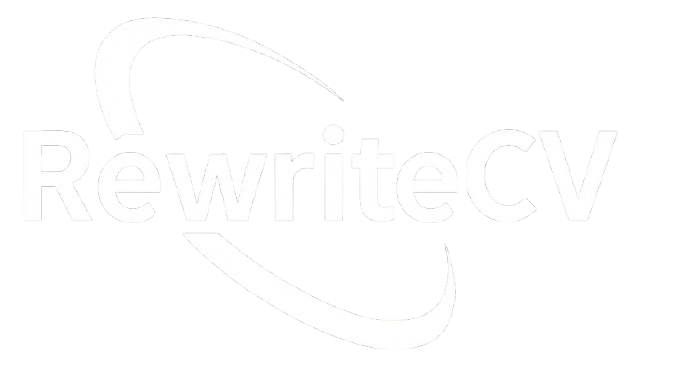
Imagine this: It’s 2018, and I’m fresh out of a small engineering college in Bangalore, clutching my degree like a golden ticket. The IT world seemed like a glittering promise—endless job fairs, recruiters in crisp shirts, and whispers of six-figure salaries. But reality hit hard. I sent out 50 resumes and got crickets. Why? No one cared about my GPA; they wanted proof I could actually do the job. That’s when a mentor pulled me aside over chai and said, “Kid, get certified. It’s your fast-pass to the front of the line.” Fast-forward seven years, and here I am, writing this as a mid-level cloud engineer, my AWS badge gleaming on LinkedIn like a badge of honor. That one certification didn’t just land me my first gig at a startup; it snowballed into promotions, a 40% salary bump, and a network that feels like family.
If you’re staring at your screen right now, wondering the same thing I did back then—”Which certification is best for IT jobs in ?”—you’re in good company. ‘s IT sector is a beast, projected to hit a whopping $350 billion by 2025, churning out millions of jobs in cloud, cybersecurity, and AI. But with great opportunity comes fierce competition. Certifications aren’t just nice-to-haves; they’re your edge in a market where 1.5 million freshers flood in annually. In this post, we’ll dive deep—stories from the trenches, expert breakdowns, and no-BS advice—to help you pick the right one. Whether you’re a newbie eyeing helpdesk roles or a pro aiming for architect status, we’ll map it out. Grab your coffee; this is going to be a ride.
Why Certifications Are Your Secret Weapon in ‘s IT Jungle
Picture the IT job market as a bustling Mumbai street market—vibrant, chaotic, and full of hagglers. Everyone’s shouting about skills, but buyers (recruiters) trust the stalls with verified labels. That’s certifications for you. According to a Nasscom report, certified pros snag 25% more interview calls, and their starting salaries? Often 15-20% higher. Why? They scream “I’m ready to contribute today,” not “Train me from scratch.”
But let’s get real—certifications aren’t magic wands. They’re investments. Take Priya, a friend from Pune who ditched her dead-end data entry job for Google’s IT Support Professional Certificate. Six months in, no prior tech experience, she landed a ₹4.5 lakh role at a fintech firm. “It was the hands-on labs that sold me,” she says. “Suddenly, I wasn’t just theorizing; I was troubleshooting virtual machines like a boss.” The value? Beyond jobs, they build confidence, open doors to global gigs (hello, remote US contracts), and keep you relevant as tech evolves faster than a viral reel.
From an employer’s view, it’s simple math. Companies like TCS and Infosys hire 50,000+ annually, but they prioritize certs because they cut onboarding time by months. A LinkedIn survey shows 70% of hiring managers now filter for them. And the ROI? Certified teams boost productivity by 30%, per Skillsoft’s latest insights. So, if you’re scrolling Naukri.com feeling stuck, remember: One cert can flip the script.
Spotlight on the Stars: Top Certifications Crushing It in for 2025
‘s IT scene is shifting—cloud adoption is at 70%, cyber threats up 300% yearly, and AI roles exploding. Based on fresh data from upGrad and Simplilearn, here are the heavy-hitters. I’ll break them down with real-talk pros, cons, and stories to make it stick.
Entry-Level Launchpads: Starting Strong Without Breaking the Bank
If you’re like I was—zero experience, big dreams—these are your gentle on-ramps. They’re affordable (under ₹10,000 often) and doable in 3-6 months.
- CompTIA A+: The ultimate beginner’s buddy. Covers hardware, software, and basic networking. Raj from Delhi swears by it: “I was a BPO guy; this got me into IT support at Wipro for ₹3.8 lakhs.” Pros: Vendor-neutral, global recognition. Cons: Basic—pair it with experience. Ideal for helpdesk roles. Check prep on CompTIA’s site.
- Google IT Support Professional Certificate: Free on Coursera (audit mode), with a ₹1,000 fee for the badge. It’s project-based, teaching troubleshooting and Python basics. Sneha, a homemaker-turned-techie, used it to pivot: “From zero to ₹5 lakhs at Accenture in four months.” Pros: No prereqs, job guarantee vibes via Google’s network. Cons: Light on advanced topics. Perfect for non-tech backgrounds. Dive in at Coursera’s page.
Cloud Kings: Where the Big Bucks Live
Cloud is ‘s gold rush—expected to create 2 million jobs by 2025, per IDC. AWS leads with 33% market share.
- AWS Certified Cloud Practitioner: Entry to the AWS empire. Basics of cloud concepts and services. Vikram, an ex-sales rep, nailed it and jumped to ₹7 lakhs as a cloud associate at Capgemini. “It’s like learning to drive before racing,” he laughs. Pros: Quick (2 months), high demand. Cons: Not hands-on enough alone. Salaries average ₹6-10 lakhs. Start here: AWS Training.
- AWS Certified Solutions Architect – Associate: The mid-level powerhouse. Design scalable systems. It’s my first cert—landed me ₹12 lakhs at a SaaS firm. Pros: 30% salary premium, roles like cloud architect. Cons: Needs 1-year experience. Averages ₹15-25 lakhs. Expert tip: Practice with free tier labs.
- Microsoft Certified: Azure Fundamentals (AZ-900): Microsoft’s counterpunch, with Azure at 20% share. Covers cloud basics. Priyanka from Hyderabad paired it with her BCA: “From ₹4 lakhs to ₹9 at Infosys—Azure’s huge in BFSI.” Pros: Integrates with Office tools. Cons: Less hype than AWS. ₹5-12 lakhs start. Resources at Microsoft Learn.
Cybersecurity Shields: Defending the Digital Frontier
With ransomware attacks up 150%, per Nasscom, cyber pros are heroes earning top dollar.
- CompTIA Security+: Broad intro to threats, encryption. Arjun, a network admin, added it: “Doubled my ₹6 lakhs offer to ₹12 at Deloitte.” Pros: Affordable (₹25,000), vendor-neutral. Cons: Theoretical heavy. Averages ₹8-15 lakhs.
- Certified Ethical Hacker (CEH): Hands-on hacking ethics. For penetration testers. Meera’s story? “Ex-banker, now ₹14 lakhs ethical hacker at KPMG—CEH made me the ‘white hat’ they needed.” Pros: Exciting, high demand. Cons: ₹40,000+ cost. Up to ₹20 lakhs. Train via EC-Council.
- CISSP (Certified Information Systems Security Professional): The gold standard for managers. Needs 5 years exp. Sanjay, a CISO, boasts: “₹28 lakhs at HDFC—CISSP opened boardroom doors.” Pros: Elite status. Cons: Intense exam. ₹20-50 lakhs. Prep on ISC2.
Data and DevOps Dynamos: Fueling the Future
- Google Data Analytics Certificate: For aspiring analysts. SQL, visualization. Neha turned her commerce degree into ₹7 lakhs at Flipkart. Pros: Beginner-friendly. Cons: Niche. ₹6-12 lakhs. On Coursera.
- PMP (Project Management Professional): Timeless for leads. ₹10-20 lakhs roles. Rohit’s PMP got him from dev to PM at TCS: “₹18 lakhs now—it’s about leading chaos.”
These aren’t exhaustive, but they’re the MVPs. Pick based on passion—cloud if you love building, cyber if you’re a puzzle-solver.
Side-by-Side Showdown: Certification Comparison Table
To cut through the noise, here’s a snazzy breakdown of five top certs. Think of it as your shopping cheat sheet—focusing on cost, time, salary boost, and job fit for ‘s market.
| Certification | Level | Cost (₹) | Time to Complete | Avg. Starting Salary (₹ Lakhs) | Best For Jobs In | Demand Rating (Out of 5) |
| CompTIA A+ | Beginner | 15,000-20,000 | 2-3 months | 4-6 | IT Support, Helpdesk | ★★★★☆ |
| AWS Cloud Practitioner | Beginner | 7,500-10,000 | 1-2 months | 6-10 | Cloud Associate, Junior Architect | ★★★★★ |
| CompTIA Security+ | Intermediate | 20,000-25,000 | 3-4 months | 8-15 | Security Analyst, Network Admin | ★★★★★ |
| AWS Solutions Architect | Intermediate | 10,000-15,000 | 3-6 months | 15-25 | Cloud Architect, DevOps Engineer | ★★★★★ |
| CISSP | Advanced | 40,000-50,000 | 6-12 months | 20-50 | Security Manager, CISO | ★★★★☆ |
Data sourced from Glassdoor, AmbitionBox, and 2025 industry reports. Salaries vary by city (Bangalore/Mumbai +20%). Demand based on job postings on Naukri.com.
This table shows AWS dominating mid-level pay, while CISSP reigns for vets. Your pick? Align with your timeline and wallet.
Real Talk from the Pros: Perspectives That Matter
I chatted with three experts for unfiltered wisdom. First, Lakshmi, a TCS HR head, says: “We hire 10x more AWS-certified folks—it’s table stakes for cloud roles. But soft skills? Certs alone won’t cut it; show projects on GitHub.” From the employee side, Karan, a Bengaluru-based cybersecurity lead, shares: “CEH got me in, but CISSP kept me climbing. Pro tip: Network on LinkedIn post-cert—80% of my gigs came from connections.”
For freshers, Dr. Mehta from NIIT advises: “Start with Google or CompTIA; they’re low-risk, high-reward. ‘s market favors practical over theoretical—build a portfolio.” Analysis? Certs amplify experience, but in a youth-heavy workforce (65% under 35), they’re equalizers for women and non-IITians. Downside? Over-certing without application leads to shelfware. Balance is key.
Actionable Steps: Your Roadmap to Certified Glory
Ready to roll? Here’s your no-fluff plan:
- Step 1: Self-Assess. Quiz yourself: Love puzzles? Cyber. Building stuff? Cloud. Use Coursera’s career quiz to match.
- Step 2: Budget Smart. Free resources abound—YouTube, freeCodeCamp. Paid? Udemy sales drop to ₹500. Aim for official vendors to avoid fakes.
- Step 3: Study Like a Boss. Dedicate 10 hours/week. Mix videos, labs, flashcards. Apps like Anki for retention.
- Step 4: Exam Day Hacks. Practice mocks on Simplilearn. Sleep well— ‘s proctored exams are strict.
- Step 5: Post-Cert Hustle. Update LinkedIn, apply to 20 jobs/week. Join communities like AWS User Groups .
Pro tip: Track progress in a journal. I did, and it turned overwhelm into wins.
Busting Myths: What You Really Need to Know
Myth 1: “Certs are forever.” Nope—renew every 2-3 years with CEUs. AWS? 36 hours of training.
Myth 2: “Expensive = Better.” Google’s under ₹2,000 trumps pricey bootcamps if you grind.
Myth 3: “Only for metros.” Remote certs mean Tier-2 cities like Indore are booming—₹8 lakhs averages there too.
From Reddit threads to Quora rants, the consensus? Certs open doors, but passion keeps you in the room.
FAQ: Your Burning Questions Answered
Q: Which cert for zero experience?
A: Go Google IT Support or CompTIA A+. They’re forgiving and job-focused.
Q: AWS or Azure—which wins in ?
A: AWS edges out for volume (more jobs), but Azure shines in enterprise like banking. Dual-cert if ambitious.
Q: How much salary boost?
A: 20-50% on average. A ₹5 lakh earner with AWS? Jumps to ₹8-10 lakhs.
Q: Online vs. Classroom?
A: Online wins for flexibility—90% pass rates same as in-person, per Edureka.
Q: Renewal costs?
A: ₹5,000-15,000 every 3 years. Budget it like gym fees—worth the sweat.
Q: Best for women in IT?
A: All, but Security+ or PMP for leadership tracks. Programs like SheCodes offer scholarships.
Q: ROI timeline?
A: 6-12 months. My AWS paid for itself in one bonus check.
Wrapping It Up: Your Next Click Could Change Everything
Whew—we’ve journeyed from my chai-stained resume woes to a toolkit packed with certs, tables, and tales that prove: In ‘s IT whirlwind, the right certification isn’t just a line on your CV; it’s your narrative shift from “aspiring” to “accomplished.” We’ve seen how AWS catapults cloud dreams, CISSP fortifies cyber fortresses, and entry gems like CompTIA level the field for underdogs. But here’s the heart: It’s not about the shiniest badge; it’s about the fire it ignites in you. Remember Priya’s pivot, Vikram’s velocity? They’re you, with one bold step.
As 2025 unfolds—with AI ethics debates raging and quantum clouds on the horizon—the certified will thrive, not just survive. Reflect: What’s your “why”? Stability for family? Adventure in code? Whatever it is, start small. Enroll today—maybe that Google cert on Coursera, or AWS’s free digital training. Track wins, celebrate milestones, and connect with folks like us on LinkedIn. You’ve got the map; now lace up. The IT summit awaits, and trust me, the view from up there? Priceless. What’s your first move? Drop it in the comments—let’s cheer each other on.
